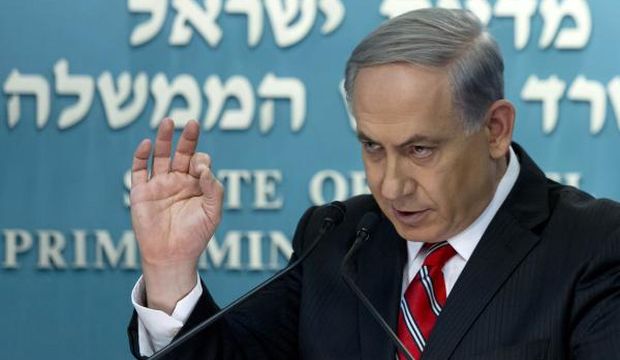The anger felt by many Saudis was expressed by Prince Turki Al-Faisal in an article, ‘The Denial of Saudi Efforts toward the Helpless,’ published in this newspaper last Wednesday, and in which he wrote about “the outrageous attempts by the Israeli government and its lackeys to portray Saudi Arabia as condoning the criminal and barbaric massacres in Gaza.” In response, Prince Turki outlined, using facts and not opinions, the true Saudi stances on the Palestinian cause from the era of the late King Abdulaziz to that of King Abdullah Bin Abdulaziz, well-known positions which were never insubstantial or based on narrow political calculations.
I hold in great esteem and respect His Royal Highness’s blaming the Israeli government and its lackeys here. But the truth is that Tel Aviv has always used this malicious ploy, and Israeli attempts to obscure the truth are nothing new. What is strange, however, is that Saudi and Gulf nationals have assisted these efforts. Equally strange is that the same people never quote the “enemy” Israeli media or give it any credibility except when it insults Saudi Arabia and satisfies their agenda.
The fraudulent campaign launched against Saudi Arabia and its position on the Palestinian issue was boosted greatly by media outlets funded by a brotherly state, which has poisoned the general atmosphere at the same time as criticizing Saudi Arabia’s stance on the Palestinian cause.
Meanwhile, supporters of the Muslim Brotherhood inside and outside Saudi Arabia did not pass up the chance to capitalize on the general mood in the Arab world, which is always sympathetic to Gaza—and especially in light of the barbaric attack launched upon it—insinuating that the Saudi stance on the Israeli attack was weak.
Those who wish to criticize Saudi Arabia can do so on any issue they like, except for two: The Palestinian cause, and the defense of the religion of Islam and all that is holds holy. And similarly regarding Egypt and its defense of Palestine and the Palestinian cause.
The campaign of lies and incitement against Saudi Arabia and its stances on the Palestinian cause—and specifically Gaza—constitutes part of a wider strategy aided by those who sympathize, whether knowingly or unknowingly, with the Muslim Brotherhood, helping to effect this strategy in extreme detail.
Whoever observes events in Saudi Arabia—from minute domestic affairs to wider, more dangerous ones—will note that this mobilization is based on an attempt to spread chaos inside Saudi Arabia in as many ways as possible. For the record, the first to use this inflammatory media strategy were the Iranians and Hezbollah.
Now we are seeing a number of media outlets following the same method: Qatar’s Al-Jazeera and the official Turkish news agency Anadolu, for example. Needless to say, this strategy will fail on the ground, unless we discount social media, much of which is inconsequential, in any case. And this should not come as a surprise; such outlets have long been their “playground.”
Saudi Arabia has enacted laws criminalizing the Muslim Brotherhood, the Islamic State of Iraq and Syria, Al-Qaeda, and other terrorist organizations; and yet still, unfortunately, there are those who openly support and benefit one terrorist group or another, undeterred by this clear and unambiguous law. Take for example a university lecturer who claims openly that his group—the Muslim Brotherhood—are the only Muslims there are, while all those against them are “Zionized” or “the enemies of religion”—placing the government of his own country in this very dangerous category. But these words, like others, go unpunished.
During the 2006 Lebanon war, Hezbollah’s media outlets coined and spread the expression “Zionized Arabs” to describe all those who disagreed with the party politically. That campaign failed and its promoters and those who joined them were exposed. In the current Israeli war on Gaza, those who sided with Hezbollah and made them out to be the heroes of the nation—before their crimes were exposed in Syria—used the same expression to describe those who disagreed with Hamas politically; as if Hamas were a heavenly, infallible body.
Who could believe that Tel Aviv would join its lackeys in an attempt to smear Saudi Arabia and the Saudis? Your Royal Highness, it was not the Israelis who participated in this failed campaign, like the previous one; it was Saudis, Gulf nationals, and Arabs. So, who is the Zionist here?
